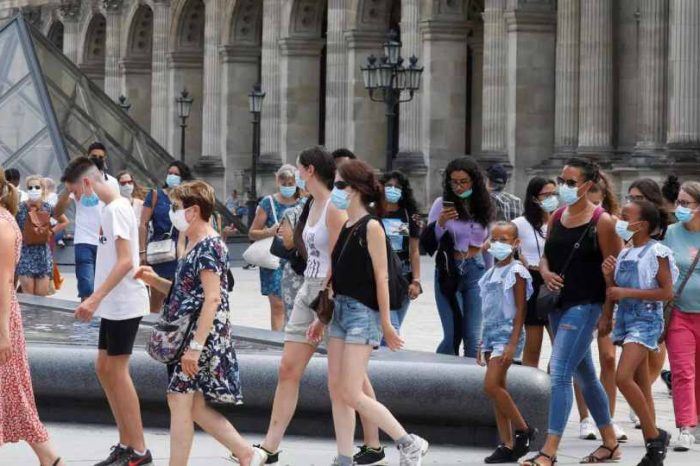Clearview, a controversial facial-recognition AI startup with an app that lets strangers invade your privacy, raises $8.6 million in funding

We first wrote about Clearview AI in January after the New York Times ran a story about the controversial AI startup, titled: “The Secretive Company That Might End Privacy as We Know It.” According to the report, more than 600 law enforcement agencies, including the FBI, are already using this facial recognition technology, despite bans on the technology in cities like San Francisco.
Fast forward to nine months later, Clearview just raised $8.6 million in a recent fundraising round, according to financial documents filed with the Securities and Exchange Commission (SEC) on Thursday. According to Clearview’s SEC filing, the startup raised $8.625 million in equity sales. The first sale occurred at the beginning of August. The funding disclosure comes amid a series of legal challenges to Clearview for its alleged violation of various states’ biometric information and data privacy laws.
Founded in 2017 by Hoan Ton-That, an Australian techie and onetime model, Clearview is a new research tool used by law enforcement agencies to identify perpetrators and victims of crimes. Clearview AI’s technology has helped law enforcement track down hundreds of at-large criminals, including pedophiles, terrorists, and sex traffickers. It is also used to help exonerate the innocent and identify the victims of crimes including child sex abuse and financial fraud. With Clearview AI, law enforcement is able to catch the most dangerous criminals, solve the toughest cold cases and make communities safer, especially the most vulnerable among us
Ton-That, 31, grew up in Australia and moved to the U.S. at 19 years old. He worked in app development and as a part-time model before founding Clearview AI four years ago. “There’s a lot of crimes and cases that are being solved,” Ton-That told New York Times. “We really believe that this technology can make the world a lot safer.”
The report has already raised concerns among privacy advocacy groups: “If a picture of you exists somewhere online, and you participate in a protest or a rally, then it’s plausible law enforcement could upload a picture of you at the rally, run it through the Clearview system and easily find out who you are,” NY Times said.
As the New York Times reported back in January, Clearview has built a database of more than 3 billion images taken from Facebook, Instagram, and the world’s largest social networking platforms. The New York Time story has already raised concerns among privacy advocacy groups: “If a picture of you exists somewhere online, and you participate in a protest or a rally, then it’s plausible law enforcement could upload a picture of you at the rally, run it through the Clearview system and easily find out who you are,” NY Times said.
Clearview app is so dangerous that even Google said it wouldn’t build it. Speaking at The All Things Digital Conference in 2011, former Google Chairman Eric Schmidt said Google decided not to implement facial recognition technology because of privacy concerns. He said he thought it’s something that can be used in a “very bad way as well as a very good way.”
Other organizations are also coming out to express their opposition to the app. Fight for the Future tweeted: “We can’t fix this with gimmicky jewelry or sunglasses we’re supposed to wear when we leave our homes. We can’t fix it with industry-friendly regulations. We need to meet surveillance capitalism head-on. We need an outright ban on AI-powered surveillance.”
However, Clearview sees it differently. According to a mission statement on its website, Clearview dubbed its app as “a new research tool used by law enforcement agencies to identify perpetrators and victims of crimes.” The startup claimed its “technology has helped law enforcement track down hundreds of at-large criminals, including pedophiles, terrorists, and sex traffickers. It is also used to help exonerate the innocent and identify the victims of crimes including child sex abuse and financial fraud. Using Clearview, law enforcement is able to catch the most dangerous criminals, solve the toughest cold cases and make communities safer, especially the most vulnerable among us.”
US law enforcement agencies are not the only users of Clearview’s technology. The app is also used by police departments in Australia. “We have a few customers in Australia who are piloting the tool, especially around child exploitation cases,” Ton-That said.

Hoan Ton-That is the founder of Clearview AI, which has supplied hundreds of police departments with facial recognition technology. (Supplied)




